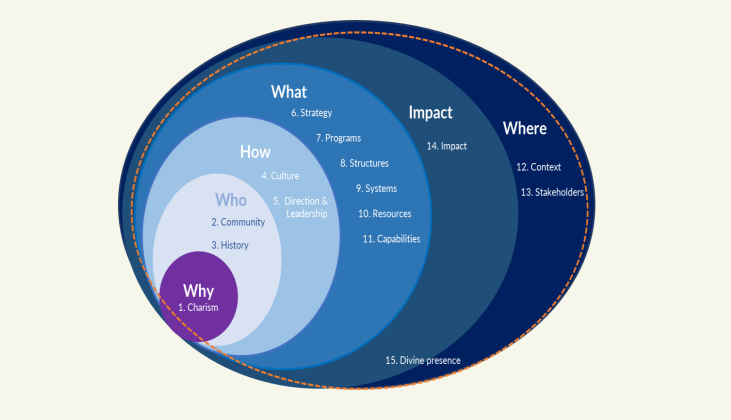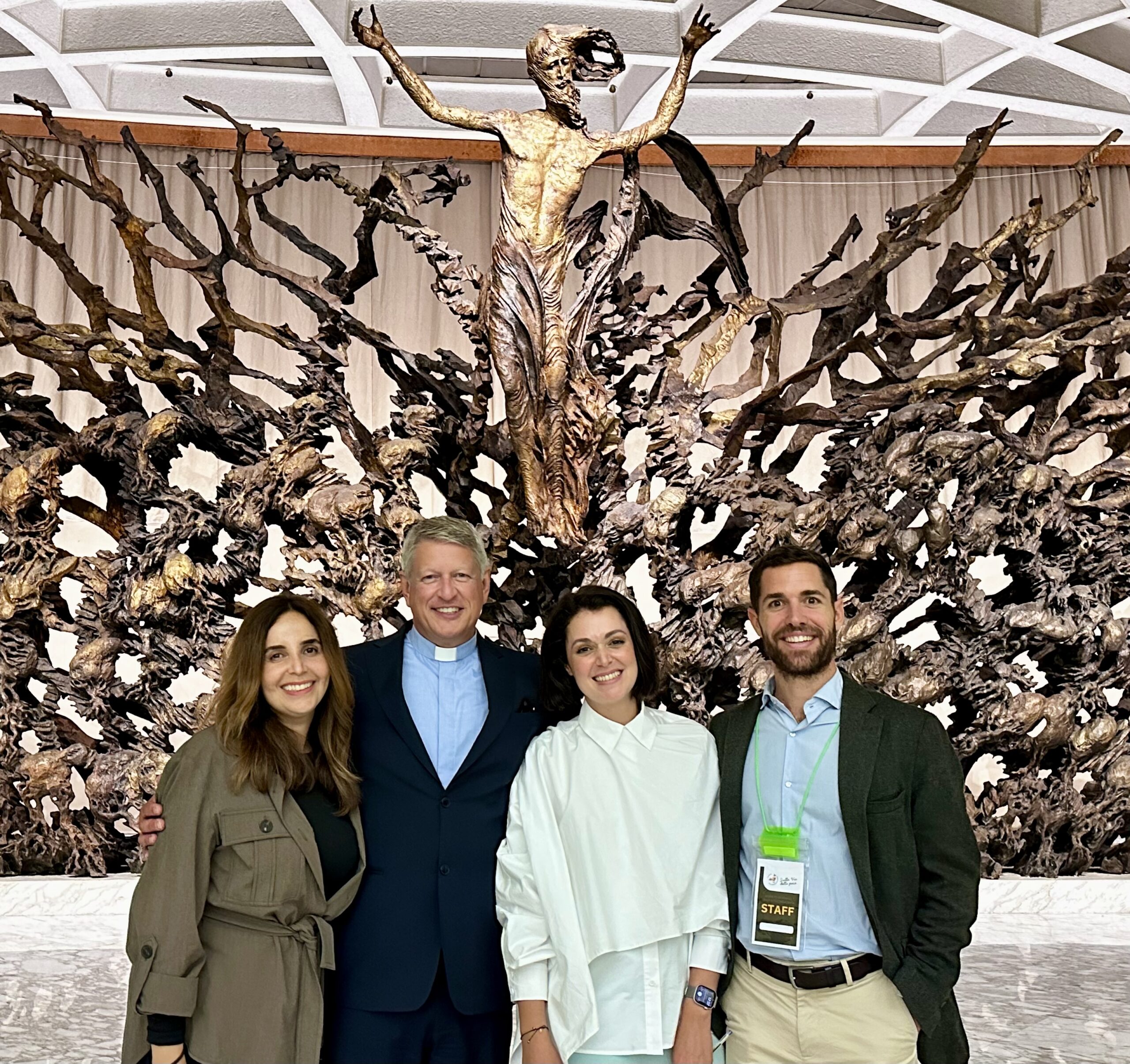In order to foster leadership growth among Church superiors, the Discerning Leadership Program offers an integrated formation approach. This includes high-quality content, individual reflection, group sharing, professional coaching, and leadership instruments. A recent addition to this offering is the Peer Coaching Circles, a complementary and transformative methodology rooted in spiritual discernment, deep listening, and collective wisdom.

What Are Peer Coaching Circles?
Peer Coaching Circles—also called Peer Accompaniment Circles—are small, confidential groups of 4 to 6 leaders who meet regularly to support one another in addressing real leadership challenges. Each session centers around one participant (the “Case Convener”) who presents a current, concrete leadership issue. The other participants serve as “Coaches,” listening deeply and asking open-ended, evocative questions to help the Case Convener access their own insight, rather than offering advice or solutions.
This method draws inspiration from Otto Scharmer’s “Case Clinic” and Theory U, but has been adapted by Discerning Leadership to reflect a spirituality of accompaniment and discernment appropriate for Church leaders.
Purpose and Benefits
Peer Coaching Circles are designed to:
- Create a safe and sacred space for personal and professional integration
- Offer access to the collective wisdom and social support of caring and competent peers
- Help each leader respond to pressing challenges in a discerning, creative, and effective way
- Encourage listening to the Spirit through silence, resonance, and reflection
Core Principles
- Confidentiality and Trust – A foundation of safety is created so participants can be vulnerable and authentic.
- Spiritual Grounding – Meetings are anchored in silence, prayer, and reflection, often using scripture, poetry, or visual inspiration.
- Deep Listening and Presence – Participants practice being fully present and listening with empathy and without judgment.
- Non-Advisory Support – Peers do not give advice but instead ask open questions that foster reflection and personal insight.
- Rotation of Roles – Each session features a different Case Convener, with others rotating as coaches and timekeepers.
Basic Methodology
Each Peer Coaching Circle session typically follows this structure:
- Arrival and Centering (10 min) – The group begins with a moment of silence and reflection, grounding themselves in the Spirit.
- Presentation of the Case (10–15 min) – One participant presents a leadership challenge or aspiration.
- Reflective Silence (5 min) – All sit in silent contemplation, letting questions or resonances surface.
- First Round of Reflections (10 min) – Each listener shares what they heard and asks open, curious questions.
- Generative Dialogue (15 min) – A free-flowing, spirit-led dialogue helps explore the challenge more deeply.
- Closing Reflection (5 min) – The Case Convener shares final insights, followed by silent journaling and a prayer of thanksgiving.
The circles are self-facilitated, with one participant gently managing time and process. Over time, the facilitation role becomes less prominent as the group grows in rhythm and trust.
A Recent Experience with Church Leaders
Recently, this methodology was offered to a group of 25 Church leaders who had previously participated in the Discerning Leadership online formation. Participants were placed into language-based peer coaching circles and invited to engage in this reflective and supportive practice over several weeks.

The results were deeply moving. Participants shared powerful testimonies about how being listened to with such depth and care—not for the sake of advice, but for genuine discernment—had transformed their view of leadership. Many spoke of feeling more empowered in their roles, more peaceful internally, and more spiritually aligned in their ministries. The act of accompanying one another as peers cultivated a sense of solidarity and grace in leadership.
“I learned in the sharing we had, the openness and the willingness to be listened to. And I even felt that the one that presented the case was being healed and listened without judgement.” (Superior General)
“This workshop is feeding me, increasing my confidence to listen, to share freely and to learn to listen to others without judging. I have tried to practice this kind of listening with the young and the elderly. I feel more at peace and to recognize the grace of God. I am happy about this.” (Superior General)
“When I presented a case I felt listened attentively. Others supported me with free inquiry, for me to identify where the problem is. It enlightened me, opened me, other views to reflect on and to inquire on the root of the case and the solution, what to do, and how to prepare.” (Superior General)
Learn More
If you’re interested in bringing Peer Coaching Circles into your leadership practice or ministry context, we invite you to download our Brief Guide on Peer Coaching Circles, which offers clear instructions for starting and facilitating your own circle.
For further resources, you can explore the work of Coaching Ourselves and Otto Scharmer’s Theory U approach to collective leadership and transformation.




